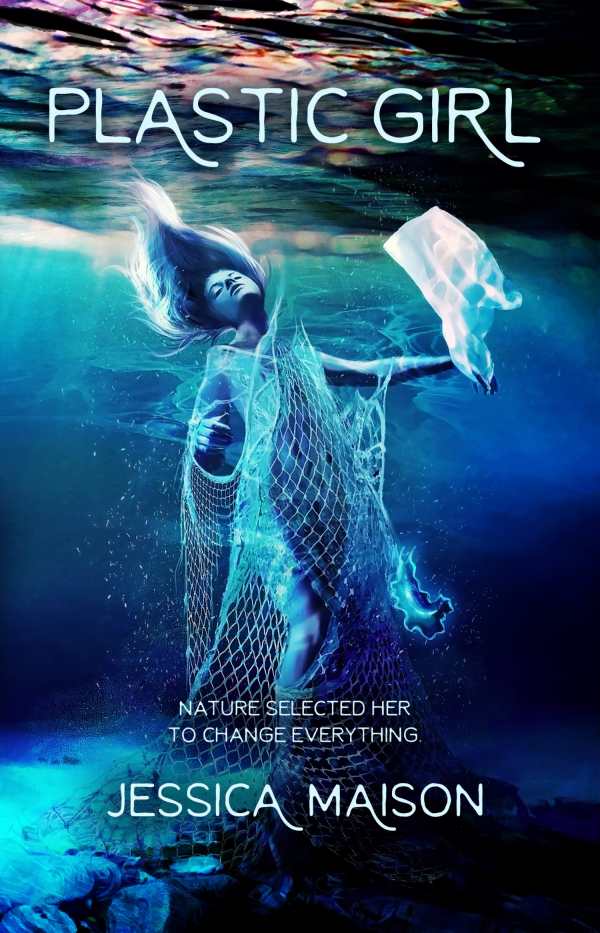Plastic Girl
Plastic Girl is a compelling cautionary tale set in a world where climate change has been taken to its logical extremes.
In Jessica Maison’s young adult climate change novel Plastic Girl, a teenager possesses the power to create life from plastic waste, but a violent gang’s desperate grab for resources could unravel it all.
Pollution and ecological disaster have resulted in mass starvation on Earth, where orphaned children struggle to survive. Sixteen-year-old Eva forages for food on an abandoned island, having been stranded after the disappearance of her boat. When she discovers that she can create sentient lifeforms out of worms that have evolved from plastic waste on the island, she creates flora, fauna, and a “sister,” Iris, who, in turn, creates plastic lifeforms of her own, including Cain, a woodworker whom Eva initially fears. The lifeforms return to suspended animation once they’re removed from the island.
But Eva is malnourished; she feels guilty about eating her creations, which she’s forced to do out of necessity. Her existence is further disturbed by Jacob, an orphan whom she once befriended and loved. Jacob, along with his gang’s leader, Adam, kills and plunders the island’s new resources in order to survive on the mainland. When their paths collide, Eva’s insular world with Iris and Cain is threatened.
Biblical references are woven throughout the story, in which characters play up to their biblical namesakes. Eva is modeled on Eve, functioning as a matriarchal figure from whom springs all life on her island. Jacob plays the role of the usurper; he takes advantage of Eva’s kindness for personal gain, but is capable of empathy and change. And Adam is the subjugator, consumed by his needs for power and control. Their characterizations are strong and nuanced; their personalities are layered and dimensional, and the degree to which they behave in “good” or “bad” ways depends on their role within the survival hierarchy, generating empathy.
Eva’s mysterious world is developed in a fantastical but thorough manner that makes it immersive. Its atmosphere is immediate and affecting, with tie-ins to the present that show what pollution and climate change, if unchallenged, could result in. Harsh realities are confronted throughout in a logical and involving way.
Eva narrates, and flashbacks are used to explain her and Jacob’s stories. Ongoing moral, philosophical, and emotional conflicts stem from their harsh conditions, but the teenagers work to resolve them and move forward. Iris develops trust issues with Eva, stemming from her own insecurities about her humanity as a “plastic” creature, resulting in suspense. Only the story’s ending is rushed; it features cliffhangers.
In the fascinating world of the young adult novel Plastic Girl, teenagers confront the realities of climate change. It’s a compelling cautionary tale.
Reviewed by
Nancy Powell
Disclosure: This article is not an endorsement, but a review. The publisher of this book provided free copies of the book and paid a small fee to have their book reviewed by a professional reviewer. Foreword Reviews and Clarion Reviews make no guarantee that the publisher will receive a positive review. Foreword Magazine, Inc. is disclosing this in accordance with the Federal Trade Commission’s 16 CFR, Part 255.

